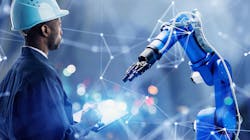Siemens and Microsoft Partner on Generative AI for Industry
Siemens and Microsoft have announced a cross-functional collaboration involving the integration of Siemens’ Teamcenter software for product lifecycle management (PLM) with Microsoft’s collaboration platform Teams and the language models in the Azure OpenAI Service along with other Azure AI capabilities.
The collaboration involves the new Teamcenter app for Microsoft Teams, which is expected to be released later in 2023. Siemens and Microsoft claim the integration of their technologies will enabling design engineers, frontline workers and teams across business functions to close feedback loops faster and solve challenges together. This Teamcenter app for Microsoft Teams will enable millions of workers who do not have access to PLM tools today to impact the design and manufacturing process more easily as part of their existing workflows.
This ability should prove to be key in detecting and recording defects early in production to help prevent costly and time-consuming production adjustments. Siemens and Microsoft say industrial AI, like computer vision, enables quality management teams to scale quality control, identify product variances easier and make real-time adjustments faster.
The two companies are also collaborating to help software developers and automation engineers accelerate the code generation for programmable logic controllers (PLCs) using OpenAI’s ChatGPT and other Azure AI services. Using ChatGPT, Siemens and Microsoft say engineering teams can significantly reduce time and the probability of errors by generating PLC code through natural language inputs. These capabilities can also enable maintenance teams to identify errors and generate step-by-step solutions more quickly.
“Powerful, advanced artificial intelligence is emerging as one of the most important technologies for digital transformation,” said Cedrik Neike, member of the managing board of Siemens AG and CEO Digital Industries. “Siemens and Microsoft are coming together to deploy tools like ChatGPT so we can empower workers at enterprises of all sizes to collaborate and innovate in new ways.”


